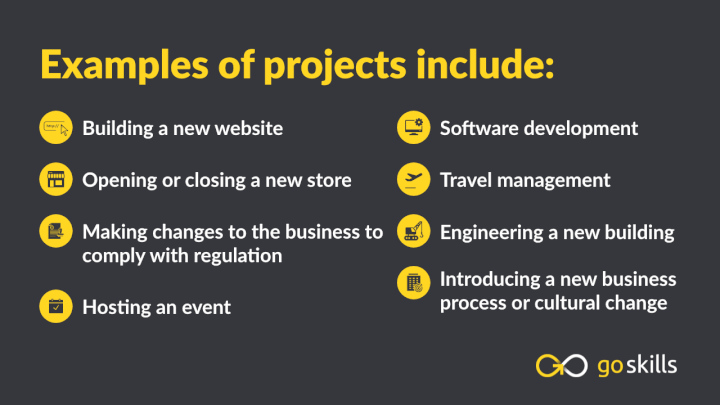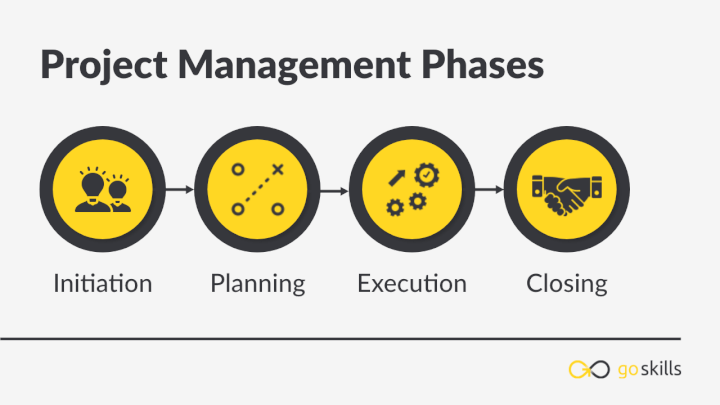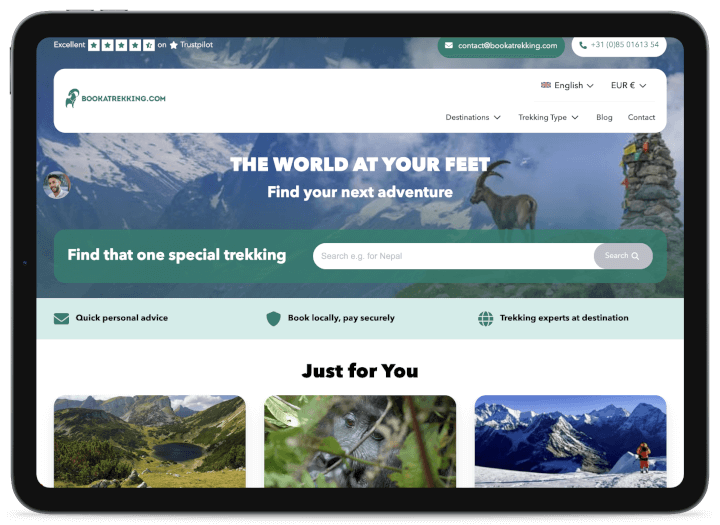Quite a large proportion of modern business in Europe and worldwide is project-oriented. This part is nearly 25% worldwide, and the travel sector is no exception. This is because more and more companies are focused on creating fundamentally new or unique products and services. They're also focused on achieving new results. Projects are no longer a set of technical documentation and estimates (as they used to be) but are serious activities aimed at realizing individual company goals.
In short, the travel agency's success strongly depends on the ability to implement project-based work. In this regard, project management has become a relevant and important topic for travel agents of any level.
What is a project?
A project is a process (or group of activities) with a clearly defined timeframe. Its purpose is to create a unique product or obtain some innovative results. In the tourism business, the goal of a project is often called the solution of specific tasks. Accordingly, project management is a specific activity, the purpose of which is to realize all the tasks set. For this purpose, the maximum amount of effort, knowledge, experience, techniques, and project management software are applied.

A project is a process or group of activities with a clearly defined timeframe.
It is important to understand how they differ from everyday activities in the organization. First, each project has its own unique goal and time constraints for its achievement. In day-to-day activities, the goal is repetitive, and the deadlines are as well. Secondly, a project ends when it has reached a set goal. Day-to-day activities are endless, and their purpose is to maintain the normal flow of the tourism business.
Project management helps to achieve the set goals quickly and efficiently. Besides, a whole system of subtasks is formed in the process, which ties in to the company's more general goals. A scheme of competent distribution of resources is developed.
Project management is a whole science that has acquired a body of knowledge, rules, and standards. The most famous resource is PMBOK. This "book of knowledge" in project management describes the best practical advice and knowledge.
What does project management involve?

- Defining and forming requirements for the project.
- Setting as clear and understandable goals as possible.
- Establishing and implementing communication between the parties involved in the project.
- Balancing project constraints: budget, resources, risks, deadlines, quality.
- Communicating with the team, considering their needs/wants/expectations, and adjusting existing plans according to the input received.
Want to learn more?
Take your project management skills to the next level with our comprehensive (and free) ebook!
All these activities are segmented into distinct phases: project initiation, planning, execution and control, and completion. Careful project management planning, organization of tasks and project components, providing the necessary resources, and controlling the effectiveness of the chosen strategy contribute to achieving the goal in the tourism business. Let's discuss this in more detail:
- Initiation (i.e., the start of the project) is a kind of familiarization with the project. Its essence and goals are defined, and a suitable team is formed.
- Planning is the most important part of the travel project management. As stated in the classical methodology on PMBOK, it should take about 50% of all time in the project realization process. The difficulty is that all the actions the travel agent must carry out to achieve a given goal are carefully prescribed during this stage. For this purpose, the project is initially divided into parts and a set of small tasks. A certain work schedule is created in which deadlines for each task are prescribed. A list of necessary resources is also worked out. In the travel agency case, project management planning includes periodic adjustments because new nuances, subtasks, and pitfalls appear in the work process.
- Execution and control. This stage should be alternated with the previous one. In an ideal project management system, everything looks like this: set a task, do it, control it, make the necessary adjustments to the plan, set the next task, and so on. At the execution stage, some tools usually facilitate the flow of processes: delegation, time management, and the Eisenhower matrix.
- Project finalization. At this stage, a control check of the completed work is made. The original data, involved instructions, and regulations are saved. This is necessary so that even a new team member can understand what and how things were done before him.
There are quite a large number of methods of how projects are managed. Besides the classic method which we just described above, some others are used:
- Agile. This is when one big project is divided into many mini-projects with step-by-step implementation.
- Lean. This is the distribution of the project into small work packages.
- Scrum. This is the division of the project into component parts.
- Kanban. This is a variant for projects that are not limited by deadlines because they can be postponed.
Learn more: Kanban vs. Scrum – what's the difference?
Each methodology has a lot of its nuances, advantages, and disadvantages. Choosing the right system depends on the specifics of your travel agency and the team that will be working on a particular project.
How is project management relevant to tourism and travel management?
Project management skills are highly relevant to a tourism and travel management career.
A travel agency's success strongly depends on its ability to implement project-based work.
Here's how project management skills can be applied in this field:
- Planning and organization. Project managers excel in creating detailed project plans, crucial in tourism and travel management. You must plan itineraries, book accommodations, arrange transportation, and schedule tourist activities. Being well-organized ensures that everything runs smoothly.
- Time management. Time is of the essence in the travel industry. Project managers are skilled at setting and meeting deadlines, which is vital when booking flights, organizing tours, and ensuring that travelers are on time for their activities.
- Budgeting. Project management involves creating and managing budgets. You'll often have to work within budget constraints in tourism and travel management. Effective budget management ensures that resources are allocated efficiently and that costs are controlled.
- Stakeholder management. Project managers are adept at managing stakeholders, and this skill is essential when dealing with tourists, travel agencies, hotels, airlines, and other service providers. Building strong relationships with these stakeholders can lead to better deals and partnerships.
- Risk management. Identifying and mitigating risks is a critical project management skill. In the travel industry, you must anticipate and manage risks such as weather-related disruptions, health emergencies, or political unrest in destination countries.
- Communication. Clear and effective communication is key in both project management and travel management. You must communicate with clients, team members, and service providers to ensure everyone is on the same page and that information is conveyed accurately.
- Resource allocation. Project managers are skilled at allocating resources efficiently, whether assigning tasks to team members or managing the allocation of rooms and transportation for travelers.
- Problem solving. In tourism and travel, unexpected issues such as flight cancellations or visa problems can arise. Project managers are trained to handle unexpected challenges and find solutions quickly.
- Quality assurance. Ensuring a high level of service quality is essential in the tourism and travel industry. Project management skills can help you establish quality standards, monitor performance, and make improvements where necessary.
- Continuous improvement. Project managers are trained to review and analyze project outcomes to identify areas for improvement. This can involve analyzing customer feedback and adjusting services to enhance the overall travel experience in travel management.
So, project management skills are highly transferable and can greatly benefit a tourism and travel management career. These skills enable professionals in this field to plan, execute, and manage various aspects of travel experiences efficiently, ultimately leading to satisfied clients and successful travel operations.
Project management software for travel agencies
Implementing project management techniques is best done with dedicated project management software. Otherwise, you may end up spending more time managing your project management tool than using the tool to manage your project. The best project management software for travel agencies are:
- Worksection
- Redmine
- Wrike
- Basecamp
- Trello
All of them pursue 3 main goals:
- To make employees more efficient.
- To make the project management process itself more productive and effective.
- To make the management of the company's project profile more convenient and transparent for an outside view.
Project management software is appropriate when the projects themselves are more or less of the same nature. They allow you to form a unified picture of the project profile, track the stages of its implementation at different levels, and control the budget and deadlines.
Project management software are tools for the organization and the team, making all the company's activities as transparent as possible. Everyone can see the time and financial costs of certain projects, their workload, and their colleagues' workload.
As a result, using such systems and the subsequent transparency of work makes it easy to identify the causes of overruns or errors, optimize costs, and effectively reduce expenses (time, finances, and labor).
A case study in tourism project management: the Bookatrekking story

In their initial years, Bookatrekking faced many challenges common to many travel agencies. Coordinating trips, managing a dynamic team of guides, ensuring customer satisfaction, and navigating the ever-changing world of travel proved to be their own uphill climb. They realized that while their love for adventure was undeniable, the need for structured management was imperative.
Recognizing the need for change, Bookatrekking embraced the principles of project management. This team implemented Basecamp and Trello in their work processes. Trello was used for implementing strategic goals, and Basecamp for local tasks.
Streamlining operations
One of the first critical steps was streamlining their operations. They recognized that time is of the essence in the world of adventure. They optimized their tour planning, booking processes, and communication through Basecamp. It enhanced their internal team coordination and ensured that customers received quick responses and seamless experiences.
Team empowerment
With Basecamp, they empowered their guides and staff. Detailed workflows and standardized procedures provided clarity, minimized errors, and allowed for quicker decision-making. The team, once struggling with chaos, was now a well-oiled machine.
Data-driven decisions
Data became their compass. With the help of Trello, Bookatrekking meticulously analyzed customer feedback, booking trends, and market insights. It allowed them to make informed decisions, tailor their tour offerings to meet customer desires, and adapt to the travel landscape.
Where a travel agent should learn project management
In this article, we have considered the basics of the rather complex project management concept.
Suppose you are seriously aiming at a deep study of this science and planning your career development as a project manager. In that case, going to the Project Management Basics course at GoSkills makes sense. In 14 engaging lessons, you will learn how to effectively manage projects from start to finish through a range of topics, including project initiation and closeout, scope, schedule and resource planning, project execution and control, and more.
Prepare to get certified in project management
Start learning today with GoSkills courses
Start free trialConclusion
Project management is an indispensable skill needed by every travel agent. It is important to understand that project management is not a situational set of measures but a procedural implementation and realization of the whole mechanism. Stay calm if this topic seems too complex and vague to you now. Modern project management is a competent and balanced system, which you should approach with readiness and seriousness. Then, you will be able to understand everything and successfully apply it in the management of your travel agency business.




